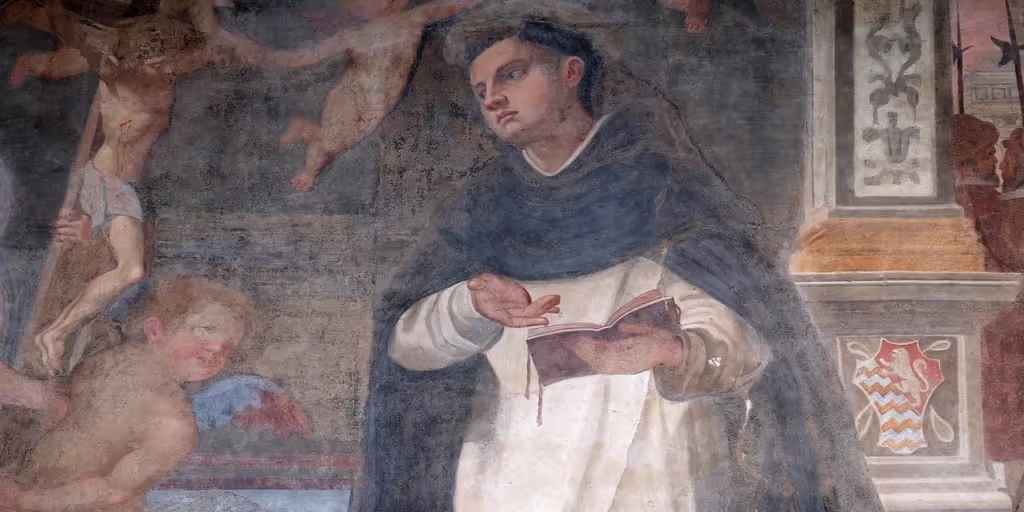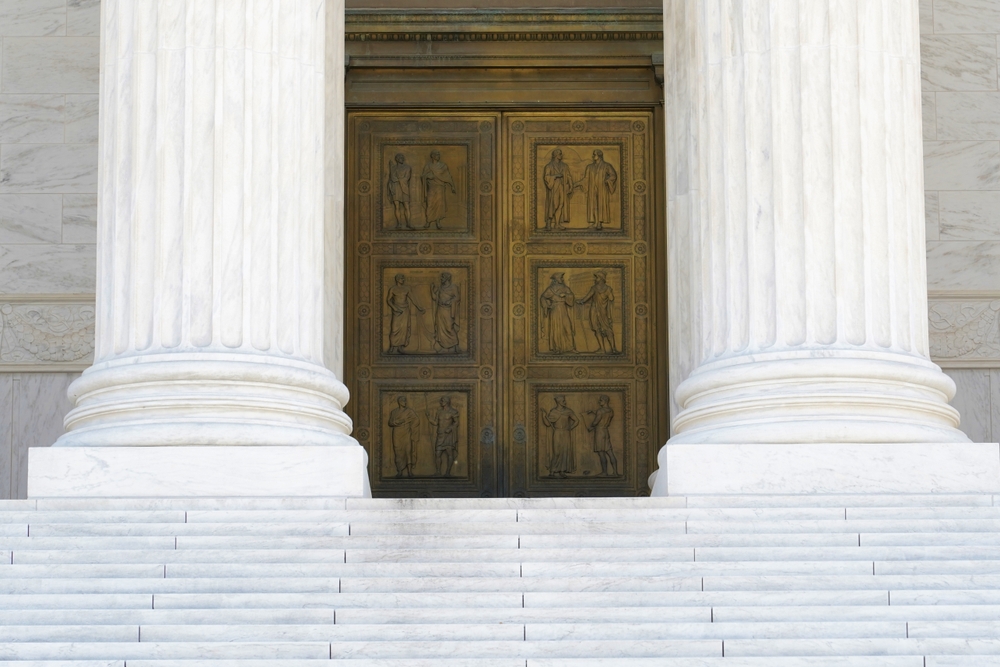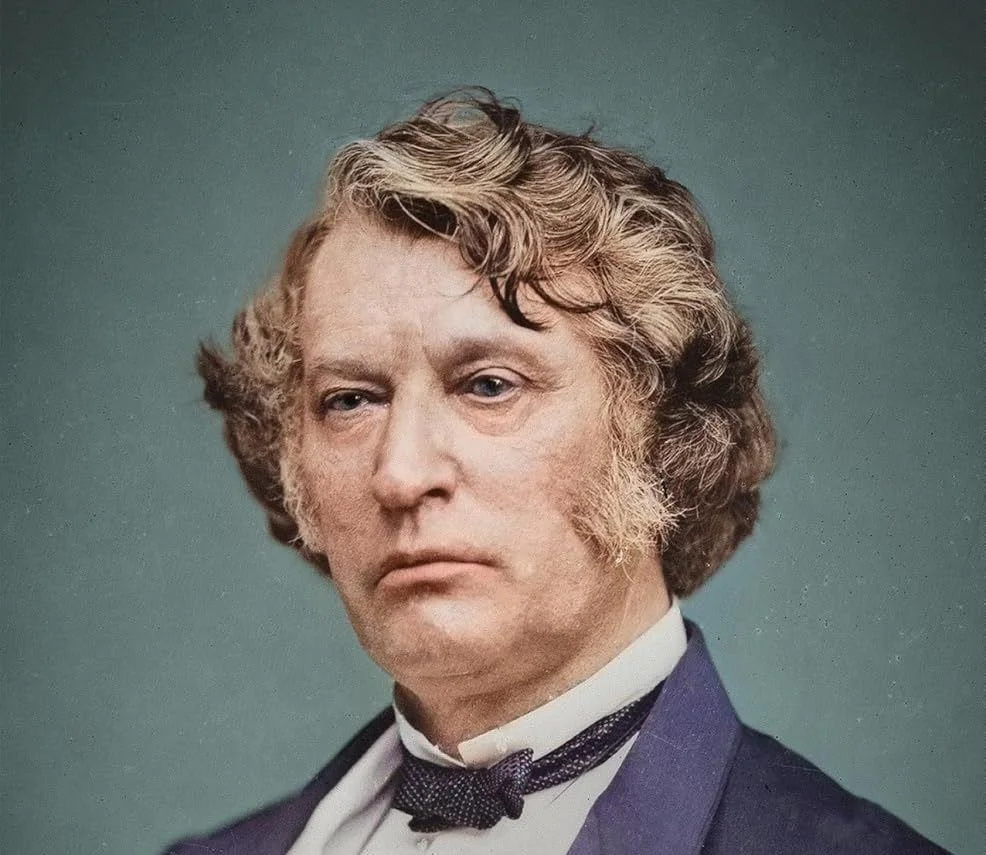
Make the Law Moral but Not Yet
We need to rejoin law, morality, and an encompassing notion of the common good to order our communities properly.
The late, legendary San Francisco Chronicle columnist, Herb Caen, used to say that “things aren’t as good as they used to be, and they never were.” There was a time when people had far less need than now for a book making the case that Law is a Moral Practice (2023). The title of Scott Hershovitz’s refreshing book encapsulates his core thesis, which he restates with different emphases: “law is a moral practice, in that it aims to adjust our moral relationships”; “When I say that law is a moral practice, I mean that we employ legal practices in an effort to adjust who owes what to whom”; and, “legal practices are tools for adjusting our moral relationships, and they are typically employed for the purpose of doing so”. People once upon a time didn’t need to be persuaded of any of this because, in general, people understood law as morality. They understood, in various ways and with various internal tensions, that when people engage in conversation and argue about what the law is, “in court and out”, they are engaging in a practice that is an aspect of the characteristic activity of rational animals according to which they collectively deliberate about individual goods and the common good and set the conditions of the possibility of the achievement of some of those goods through positive law.
What happened such that law and morality need to be rejoined in people’s understanding, the way they are already joined, as Hershovitz shows by many well-chosen examples, in what courts and others do to say what the law is? What happened, according to Alasdair MacIntyre, is that the exponents of modernity gave us something called Morality, which MacIntyre spells “with a capital M, to distinguish it from ‘moralities’ in the plural, as when anthropologists speak of the morality of the Dyaks of North Borneo or that of the Inuit peoples.” The morality of advanced modernity, capital M Morality “is presented as a set of impersonal rules, entitled to the assent of any rational agent whatsoever . . . .” Such rules are exemplified as well by the purportedly “self-evident” truths of the Declaration of Independence as by the contents of allegedly “neutral public-reason” specified (and repeatedly revised) by John Rawls and his epigones. “[F]or the exponents of Morality, as for its practitioners,” MacIntyre explains, “‘the moral’ is to be distinguished from ‘the political’, ‘the legal’, ‘the aesthetic’, ‘the social’, and ‘the economic’. Each of these in the world view of modernity names a distinct aspect of human activity and, as academic disciplines emerge, each of those aspects provides a distinct discipline with its own peculiar subject matter, one that can be studied for the most part with much or any reference to the others.” Law students in American law schools today, but for a long time before today, can graduate without so much as having asked the question, How does what we are doing in ‘law’ (treated in turn as discrete subjects such as torts, contract, property, constitutional law, criminal law, and, in aid of the modern state’s own self-justification, administrative law) contribute to the achievement of the common good?
From the standpoint of the pre-modern understanding, by contrast, each of these aspects of human activity can be correctly understood, rightly judged, and properly valued only in relation to the others, “as in this or that way and these or those circumstances it contributes to or frustrates the achievement of goods rightly ordered and so of the ultimate human good.” This perspective places each of these aspects of an activity within the characteristic questions of ethics and politics, so that it can be correctly understood, rightly judged, and properly valued in terms of constructing or undermining the kinds of institutional and social arrangements, including those associated with lawmaking, through which the common good, understood as the happiness or felicity of the whole political community, is achieved. From this standpoint, saying what the law is, in court and out, necessarily involves the moral.
Hershovitz, however, wants us to understand law as a moral practice, but does not want to say all that I have just said from the pre-modern understanding, not even close. While he wants us to understand law as moral, he decisively refuses to say that the moral is about what is good for humans qua humans, both in common and individually. “For purposes of this project,” he writes, “I’m neutral on the question how morality fits into the rest of reality. I just want to say that law is a moral practice”. As it appears in the sentence just quoted, and elsewhere in the book as well, “morality” a la Hershovitz sounds a lot like Morality as described by MacIntyre, at least inasmuch as it is free-floating and not (necessarily) generated by the same basic line of questioning as Hershovitz says leads to law. This impression is reinforced when Hershovitz says he doesn’t want us to be “misled into thinking that ‘the law’ is something about which we must do metaphysics”. Law, then, is a moral practice, but not necessarily one that requires metaphysical judgments.
But what is morality, if not the set of answers to questions about the real and, correlatively, about what is good for humans qua humans, by which answers humans are, for reasons not of their choosing, obligated when they apply? Hershovitz asks the same question, and gives a different answer: “What is morality? The word is used in many ways, and I do not think much turns on the way in which it is used, so long as we are clear about it. As I use the term here, morality is the part of practical reason that that concerns what we owe each other; that is, it’s the part that deals with rights and wrongs”. The question whether someone has a right, Hershovitz explains, “is a moral question . . . it is a question about who owes what to whom”. Although he observes that “much of morality is made by us”, Hershovitz contends that “We are all subject to the demands of morality because we are all subject to the demands of reason. . . . [E]ven though we have some control over what obligations we have, we cannot opt out of morality entirely, in the way we might opt out of a game. If there are sufficient reasons to hold that a person has a right against us, then that person has that right whether we wish her to or not”.
Hershovitz thus has rights, without goods; people owing things to one another, without a subtending metaphysics of who we humans are and what our characteristic function (ergon) is; and reason and even “practical reason,” but, so far as I can locate in the text of the book, no account of practical reason that will allow us to distinguish an essentially moral practice such as law from a very different sort of practice such as chess. Chess is a human practice from which ordinarily we can indeed opt out, absent moral reasons that require us to remain in it for a time. But can we opt out of morality? Hershovitz’s “we cannot opt out of morality entirely” answer fails to state: “A moral or normative stance is not an option. It is not the case that we are faced with a number of reasons and we are free to participate or not in legal actions.” Hershovitz’s leaving “practical reason” unexplained leaves him unable to explain how we engage in law “as the kind of creatures we are, viz., rational creatures.”
The understanding of practical reason elaborated by Thomas Aquinas judged humans to be under a natural law, a real law (qua participation in the eternal law) ordering us to do and pursue the good and to avoid evil. On that understanding, when humans make law for their political communities by deriving ordinances of reason for the political common good from the natural law, the obligation that attaches to such human law is a species of moral obligation. Hershovitz isn’t having this: “I don’t think Aquinas is right to say that human law is derived from natural law. I don’t think that every law is (or even should be) a working out of some abstract idea in morality”. Hershovitz “doubt[s] the existence of divine law”, but it would be informative to hear why Hershovitz thinks that the requirements of the natural law as understood by Aquinas are “abstract.” Although John Finnis protests that “there is no question of deriving one’s basic judgments about . . . the requirements of practical reasonableness by some inference from the facts of the human situation,” the facts of the human situation include our natural inclinations, and, on Aquinas’s understanding, “all the things to which reason naturally inclines man are things that it naturally apprehends as good.” On this latter understanding, an adequately practically rational and sufficiently reflective agent faced with the possibility of making law will ask a line of questions that begins like this: What is the good for man, the end, to be achieved by this type of activity, lawmaking? What are the particular human goods to be achieved by making these choices and doing these things in the name of the law in these circumstances? How might these ordinances of reason for the common good help us function well as humans in a political community?
In any case, we humans will answer these questions by how we live, but we can answer them better by becoming more reflective about the requirements of the human person and common good. Hershovitz has done us a great and gladsome service by reminding us that law is a species of morality in court and out. Hershovitz leaves us wondering, though, precisely when on his account “unjust laws are morally binding”, as we surely sometimes have good reason to say that they are. This is a question to which Aquinas has a nuanced answer, unnoticed by Hershovitz.
Aquinas maintains that a judge can never proceed to judgment in a case where the law is unjust because it opposes the divine (as opposed to a human) good. But since Hershovitz has told us that he doubts the existence of divine law, is he prepared to say what Aquinas refuses to say, namely, that a judge may be morally bound to enforce a law that he judges to violate the divine right? This is a question on which kingdoms rise or fall.
Patrick McKinley Brennan, John F. Scarpa Chair and Professor of Law, Villanova University, Charles Widger School of Law.
Constitutionalism

Amicus Brief: Hon. William P. Barr and Hon. Michael B. Mukasey in Support of Petitioners
Former AGs Barr and Mukasey Cite Civitas in a SCOTUS Brief

Rational Judicial Review: Constitutions as Power-sharing Agreements, Secession, and the Problem of Dred Scott
Judicial review and originalism serve as valuable commitment mechanisms to enforce future compliance with a political bargain.

Supreme Court showdown exposes shaky case against birthright citizenship
Supreme Court will hear challenges to Trump's order ending birthright citizenship, testing the 14th Amendment's guarantee for babies born in America.

Slavery and the Republic
As America begins to celebrate its semiquincentennial, much ink has been spilled questioning whether that event is worth commemorating at all. Joseph Ellis’s The Great Contradiction could not be timelier.

Two Hails For The Chief’s NDA
Instead of trying to futilely plug the dam to stop leaks, the Court should release a safety valve.


.avif)










.avif)



